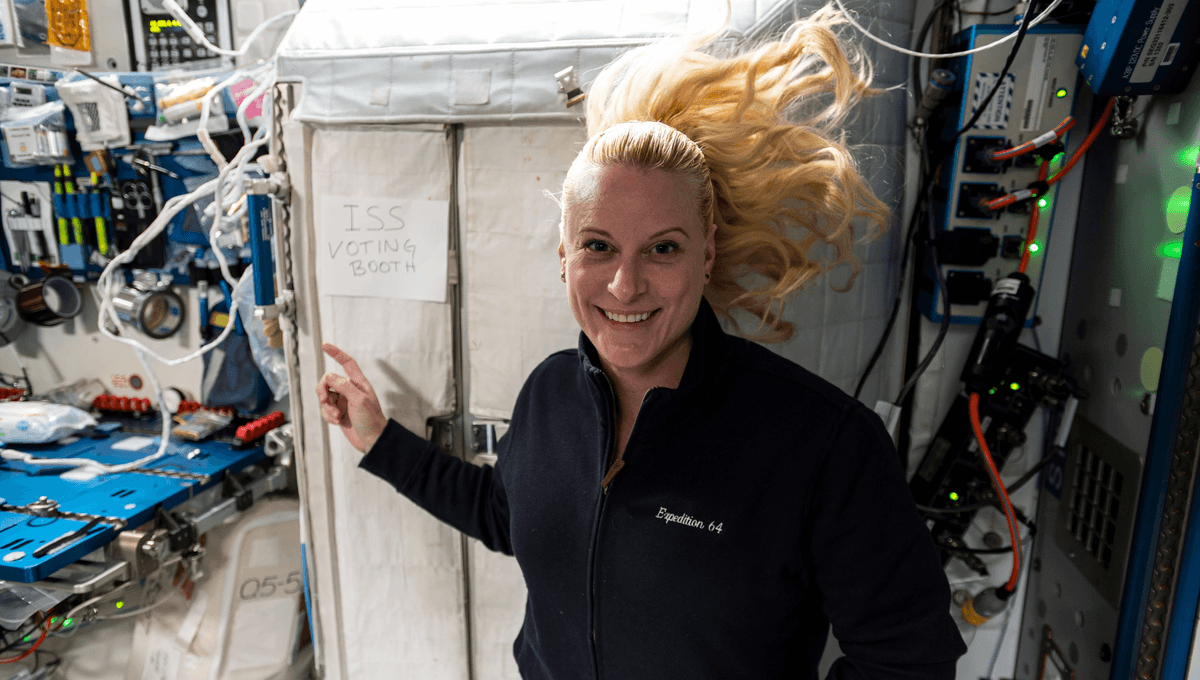
Many consider voting a civic duty, even in those countries where it is not compulsory. People go to great lengths to exercise their democratic right of choosing their representatives in politics, but sometimes circumstances don’t make it easy. Imagine if you want to vote but you are in space – your nearest drop-off location for your ballot might be more difficult to reach than others.
Cosmonauts have been voting in space almost exclusively by proxy since 1971, and usually without a secret ballot, instead just telling ground control how they intended to vote. French astronaut Thomas Pesquet also voted from space in 2017 by giving a French colleague the authority to vote on his behalf. US astronauts, however, vote directly instead, which requires a bit more complexity.
First of all, just like any American away from home, the astronauts need to fill out a Federal Post Card Application to request an absentee ballot. With that, the astronauts are allowed to fill out an electronic ballot while on board the ISS.
The ballots are encrypted and uploaded onto the station computer and then transmitted to NASA’s Tracking and Data Relay Satellite System, which sends the data down to Earth to the ground antenna in White Sands Test Facility.
The data from the antenna is then sent to the Johnson Space Center in Houston, Texas. From there, the ballots are delivered electronically to the relevant county clerk for filing. A complicated, but easier (and cheaper) way than having the ballot sent up and then back down on spacecraft.
It was astronaut John Blaha aboard the Russian space station Mir in 1996 that started this process. He wanted to vote in the 1996 presidential election. NASA had a plan, but the effort was stopped by the Secretary of State of Texas, as the state did not yet have a provision for electronic voting. A bill to allow that was passed in 1997, and astronaut David Wolf later became the first American to vote in an election from space, by voting in Houston’s 1997 local election.
Since 2004, with the exception of 2012, American astronauts have consistently voted from the ISS. During the 2012 election, both American astronauts on board, Sunita Williams and Kevin Ford, had submitted their ballots before their flight. Williams, who is currently on the ISS, probably didn’t have a chance to do that this year; her mission was extended from one week to 8 months due to Boeing’s Starliner spacecraft series of problems.
The only astronaut to have voted from space in more than one election is Kathleen Rubins, who voted in both 2016 and 2020.
Source Link: This Is How Astronauts Vote From Space